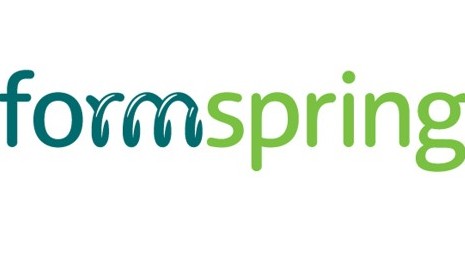Formspring: The 'vicious' new tween obsession
What is the online trash-talk phenomenon, Formspring.me — and why are attention-hungry kids seeking out its anonymous insults?

A free daily email with the biggest news stories of the day – and the best features from TheWeek.com
You are now subscribed
Your newsletter sign-up was successful
The New York Times calls it the "online version of the school bathroom wall." Others say it preys on teens' and tweens' need to feel included, even if the acknowledgement is an insult. Parents and school administrators are alarmed by the rise of Formspring.me, a social networking site that lets people ask each other nasty, anonymous "questions." This "obsession" has already been linked to one cyber-bullying suicide. Here's a concise guide: (Watch an introduction on how to use Formspring)
How does it work?
It's a question-and-answer site that lets you encourage others to "interview" you. As Techcrunch says, it "taps into one of the most fundamentally appealing qualities of social sites like Twitter and Facebook...the notion that people actually care what you’re doing or sharing." Questions are often posed anonymously; only those you answer are posted to your account. Each month, some 28 million people visit the site (which launched in November), half of them in the U.S. (See a helpful example of a Formspring user page.)
The Week
Escape your echo chamber. Get the facts behind the news, plus analysis from multiple perspectives.

Sign up for The Week's Free Newsletters
From our morning news briefing to a weekly Good News Newsletter, get the best of The Week delivered directly to your inbox.
From our morning news briefing to a weekly Good News Newsletter, get the best of The Week delivered directly to your inbox.
If you control the content, where's the risk?
The mystery of Formspring is that young people are answering and posting even the most abusive questions. “In seventh grade, especially, it’s a lot of ‘Everyone knows you’re a slut,’ or ‘You’re ugly,’ says Linwood, NJ, middle school counselor Christine Rush, as quoted in The New York Times. "It seems like even when it’s inappropriate and vicious, the kids want the attention."
Are all the comments nasty?
No, but "nice stuff is not why you get it," says high school freshman Ariane Barrie-Stern, also in the Times. "It’s [more] interesting to find out what people really think... [but] don’t have the guts to say to you."
A free daily email with the biggest news stories of the day – and the best features from TheWeek.com
Who created Formspring?
Indianapolis residents John Wechsler and Ade Olonoh, whom Wechsler describes as "a couple of married guys from the suburbs." They've since raised $2.5 million and moved to San Francisco. Wescher says that he and his partner are "disappointed to see the depths people will go when they misuse our system."
Are people getting hurt?
Yes. Formspring garnered unwanted national attention from the cyber-bullying case of Long Island, NY, teenager Alexis Pilkington, who killed herself in March after being targeted with lots of nasty messages through the site. "Nothing good can come from a website like this," says Mary Kate Cary in U.S. News, calling Formspring "the newest innovation in cyber-bullying for teens."
Is this a new idea?
Not really. It's similar to a Facebook add-on called "Honest Box" and the now-defunct college gossip clearinghouse Juicy Campus. After Juicy Campus folded in February, amid controversy and state investigations, other sites, like CollegeACB, arose to take its place. "If the site disappears...something else [will just replace it]," says Cary Anderson, vice president for student life at St. Joseph's University in Philadelphia, where CollegeACB is both widely used and widely criticized as "a Mean Girls-style 'burn book.'"
Sources: New York Times, U.S. News, St. Joseph Hawk
-
 The Week Unwrapped: Have televised confessions quelled protests in Iran?
The Week Unwrapped: Have televised confessions quelled protests in Iran?Podcast Plus, why has Elon Musk turned from Mars to the Moon? And will the BBC prove to be a puzzles champ?
-
 The week’s best photos
The week’s best photosIn Pictures An Andean god, a rogue squirrel, and more
-
 AI surgical tools might be injuring patients
AI surgical tools might be injuring patientsUnder the Radar More than 1,300 AI-assisted medical devices have FDA approval